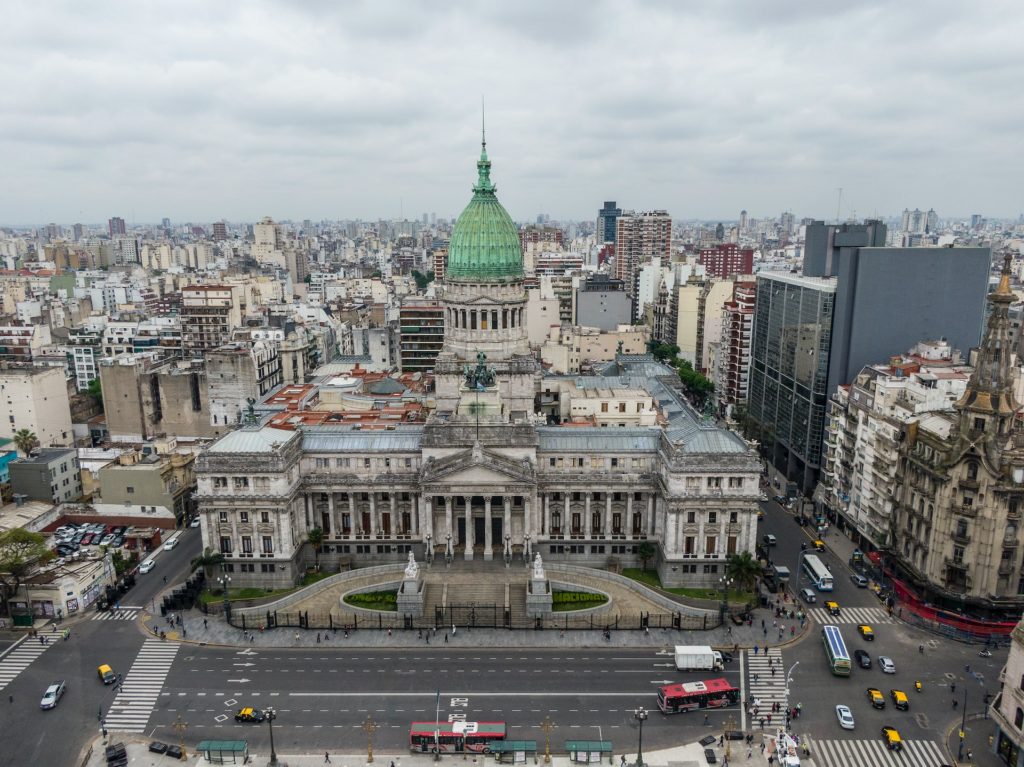The commonest types of business entities operating in the territory include private companies, Limited Liability Companies, and single-owner companies. Their establishment is authorized by the LGS (´Ley General de Sociedades N 19.550´), Argentine Companies Act. Resolutions set by the Inspección General de Justicia, Public Registry of Buenos Aires City as a companies’ control entity and public registry. Regulations guiding the operation of private companies are issued by the Administración Federal de Ingresos Públicos, the Tax Revenue Authority. A private company has a legal personality and no limit to its existence. The affairs of the company are governed by its articles of incorporation and bylaws, which state that shareholders are not liable for the debts the company incurs, except if their shares are not fully paid up. The company’s governing body is the Shareholders´ Meeting, while the Board of Directors manages its operations. They are allowed to have holdings in share companies and limited liability companies. Usually, a private company must have at least two shareholders to establish itself. All private companies have to register with the Public Registry in their jurisdiction. When this entity is publicly listed, it becomes a public SA. Public SAs are supervised by the Comision Nacional de Valores, National Securities and Exchange Commission with a different law.
If you are a business owner interested in incorporating a private company here or you are thinking of expanding to this country, this guide provides information on registering a private company in Argentina and the simple way to do it.

Features of the company
Setting up this company requires a minimum of two shareholders and no specific residency or nationality of the shareholders. A minimum of one director and an alternate director are required (if the company does not have a syndic). However, the majority of directors must reside in the country. The minimum share capital required during incorporation is 100,000 ARS, which must be subscribed by 100 percent of the shareholders at the time of incorporation, and 25 percent paid up. The company can only open a bank account after registration with the Public Registry of Commerce. Executing the notarial deed of incorporation can be done under a power of attorney.
The process of incorporation
The following are the steps to follow to register a company with the public registry:
- Prepare the notarial deed of incorporation
- Publish the incorporation in the Public Gazette
- Choose a company name and ensure it includes the word “S.A.” or “Sociedad Anónima”
- Involve a notary, company register, and governmental authorities
Note that a notarial deed of incorporation shall be executed before an Argentine notary in Spanish. The deed may be executed according to a power of attorney of the incorporator(s).
Information to be provided during the incorporation
The following must be filed at the Public Registry and most of it is publicly available:
- Bylaws
- Date of incorporation
- Name of the SA
- Place of incorporation
- Address of the SA
- Object and activities according to it
- Term of existence
- Share capital
- Shareholders´ personal information
- Details of the members of the Board of Directors and syndics
- Date of closing of the fiscal year, etc.
Timeline of the process
The simple process takes at most 1 month, the least being 5 days, provided no issue arises. In Buenos Aires, the procedure includes the filing of AFIP Form 185 for a request of the Tax Id – CUIT- of the Company and the registration of the SA.
Cost of the process
The main costs are registration costs and notaries’ fees. These actual amounts depend on the place of incorporation. In the capital city, Buenos Aires City, registration costs are approximately: 45,000 ARS for the regular procedure (452 USD) and 60,000 ARS for the expedited 5 days procedure (603 USD). Lawyers’ fees cost around 80,000 ARS (804 USD).







